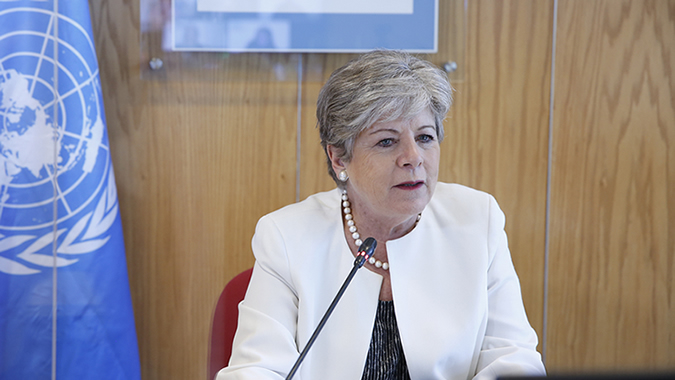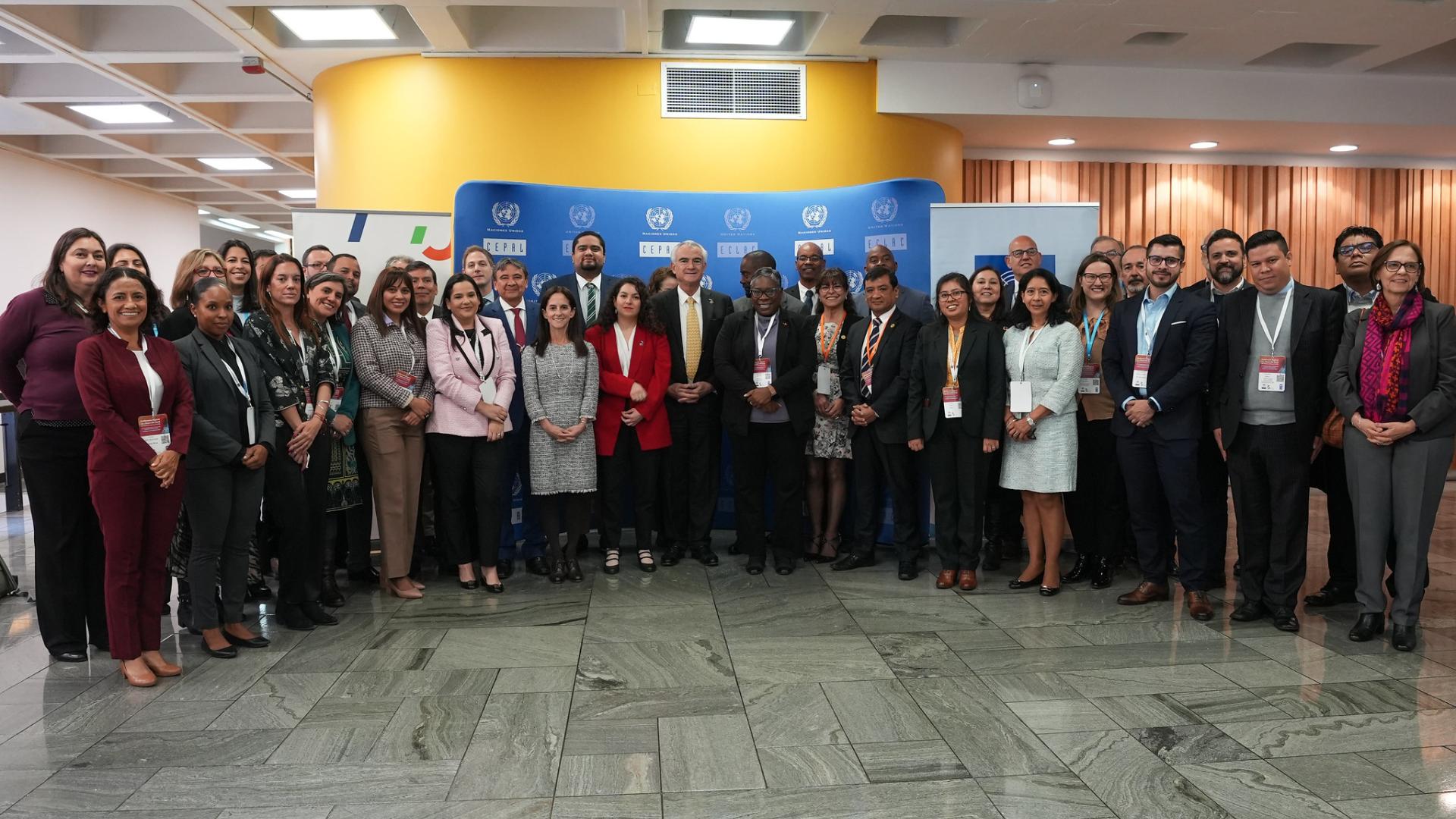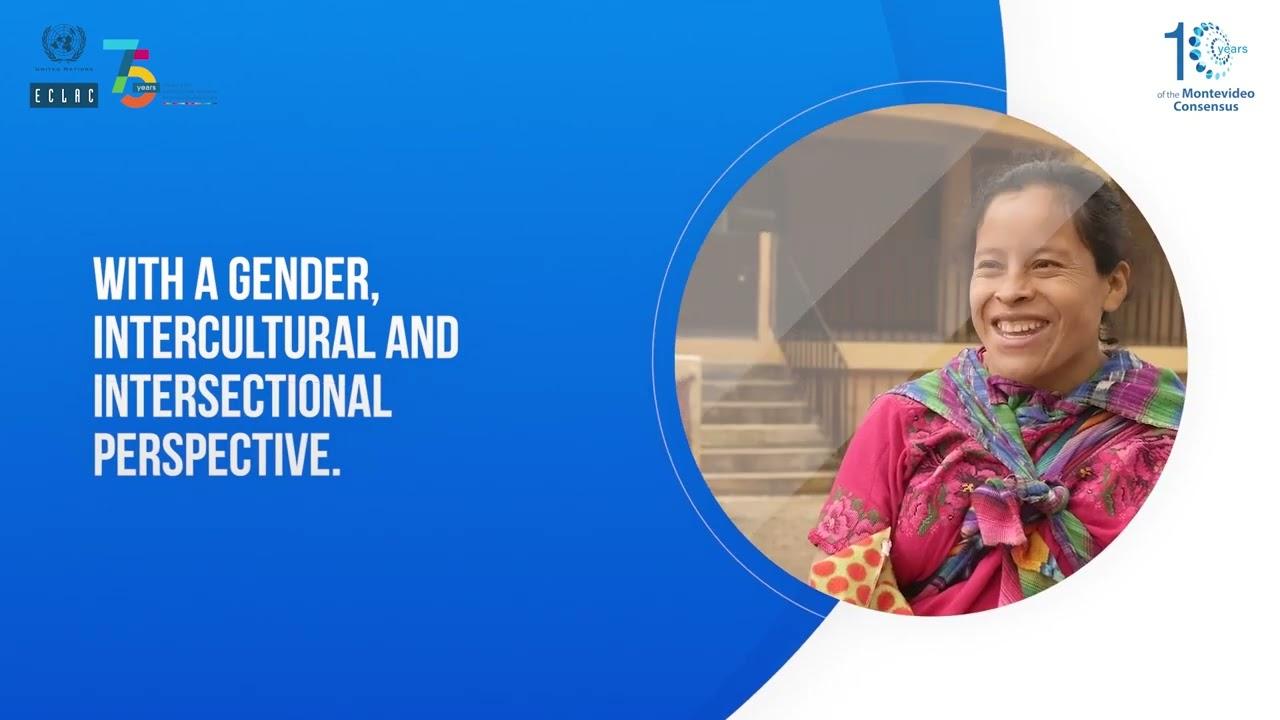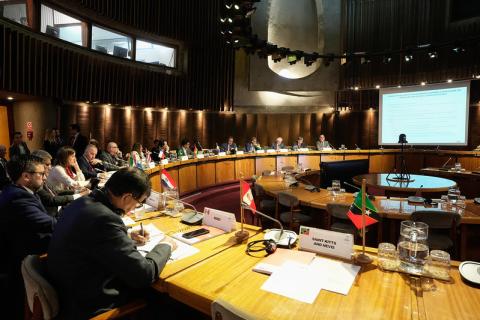Briefing note
Regional integration and solidarity are essential to confront the growing global asymmetries and disparities between developed countries and developing countries, Alicia Bárcena, Executive Secretary of the Economic Commission for Latin America and the Caribbean (ECLAC), emphasized today during the Coordination Segment of the United Nations Economic and Social Council (ECOSOC), where she referred to the causality and linkages between variables to build back better with an integrated policy strategy.
“Even as recoveries continue, divergence in growth rates, vaccination rates, fiscal stimulus, access to concessional financing, and inequality is expressed in deep income and wealth gaps with high concentration in developed countries and elites within our countries. Latin America and the Caribbean will show the least growth of all regions in the world and is the most indebted developing region,” Alicia Bárcena stressed in her remarks.
ECLAC’s highest authority participated on a panel entitled “Leveraging regional perspectives for an inclusive and resilient recovery guided by the 2030 Agenda,” along with the Executive Secretaries of the other four United Nations Regional Commissions: Olga Algayerova, Executive Secretary of the United Nations Economic Commission for Europe (UNECE); Armida Salsiah Alisjahbana, Executive Secretary of the Economic and Social Commission for Asia and the Pacific (ESCAP); Rola Dashti, Executive Secretary of the Economic and Social Commission for Western Asia (ESCWA); and Vera Songwe, Executive Secretary of the Economic Commission for Africa (ECA).
In her presentation, Bárcena affirmed that while the region faces different realities in the Caribbean, Central America and South America, all these subregions share low growth (2.1%), low investment levels (19.5% of GDP), less fiscal space and pressing inflation rates, with high unemployment (9.7%) and informality (57% of the active population), hitting women and youth particularly hard. All of this is compounded by inadequate social protection and limited access to universal health.
She noted that, according to ECLAC’s annual report entitled Social Panorama 2021, the extreme poverty rate in Latin America is seen having risen from 13.1% of the population in 2020 to 13.8% in 2021, representing a setback of 27 years, while it is estimated that the overall poverty rate fell slightly, from 33.0% to 32.1% of the population. This means that the number of people living in extreme poverty is seen having risen from 81 million to 86 million, while the total of those living in poverty fell slightly from 204 million to 201 million.
ECLAC’s Executive Secretary added that the pandemic magnified the structural problems of low productivity, social vulnerability and environmental degradation in the region, noting that while Latin America and the Caribbean only represents 8.4% of the global population, it has been the region most affected by COVID-19, accounting for nearly 30% of all COVID-related deaths and 18% of the cases on record.
In order to rethink development and build forward better, it is necessary to achieve equitable access to vaccines, to move forward on universal social protection, to consider the care economy as an economic sector that can fuel the recovery, to promote climate action and a green recovery along with universal digitalization to cover the 66 million households that have no Internet connectivity, at an estimated cost of 1% of GDP, Alicia Bárcena stated.
It is also necessary to address financing for the recovery from COVID-19 and for the attainment of the 2030 Agenda from two dimensions: national and international.
In the national arena, new political compacts with progressive fiscal reforms are needed to enable new social contracts, she sustained.
“Combatting tax evasion, which amounts to 6.1% of regional GDP, is a must. Tax expenditures, which represent 3% of regional GDP in foregone revenue, and royalty regimes on natural resource extraction need to be reconsidered. Furthermore, only four countries in the region levy some form of carbon tax – Argentina, Colombia, Chile and Mexico – which is a missed opportunity for incentivizing the region’s climate transition,” ECLAC’s Executive Secretary indicated.
However, she acknowledged, given the effects of the pandemic, many countries cannot do this on their own.
That is why, she said, “we need international cooperation tailored to the needs of the region’s predominantly middle-income countries, including the Small Island Developing States (SIDS) of the Caribbean, which are highly vulnerable to climate change.”
Bárcena highlighted some of ECLAC’s relevant proposals in this context, including redistributing global liquidity to all vulnerable countries in need, regardless of their income level, to enable a resistant recovery, in addition to reforming the global debt architecture and supporting innovative instruments to improve debt repayment capacity and enhance resilience. This includes debt-for-climate swaps and the establishment of a Caribbean Resilience Fund, as well as hurricane clauses, which should become a more systematic feature of debt relief initiatives for vulnerable countries.
ECLAC also proposes the creation of a multilateral credit rating agency to complement and counterbalance the current oligopoly of the private credit rating agencies.
Finally, the senior official revealed that at the upcoming Fifth Meeting of the Forum of the Countries of Latin America and the Caribbean on Sustainable Development, which will take place in San José, Costa Rica on March 7-9, a session on financing for development will be held with the participation of representatives of the International Monetary Fund, regional banks and the United Nations Conference on Trade and Development (UNCTAD), to discuss the issuance of additional Special Drawing Rights (SDRs), along with adaptation funds such as the recently created CELAC Fund for Climate Adaptation and Comprehensive Response to Natural Disasters, which has received $4 million dollars in funding from Mexico and Argentina and which is awaiting more contributions from the region’s countries.
During the ECOSOC Coordination Segment, representatives of Latin American and Caribbean countries and other high-level authorities praised ECLAC’s work and the leadership of Alicia Bárcena, who has accompanied the region’s countries along their path towards sustainable development for the last 14 years, putting emphasis on equality in its multiple manifestations and highlighting the specific challenges faced by middle-income countries.
“Thank you for your achievements, your efforts, your sacrifices for ECLAC and for public service,” stated Suriya Chindawongse, ECOSOC Vice-President and the Permanent Representative of Thailand to the United Nations.



